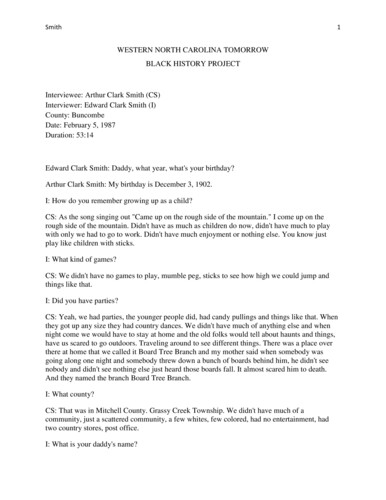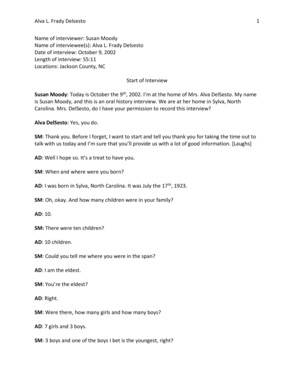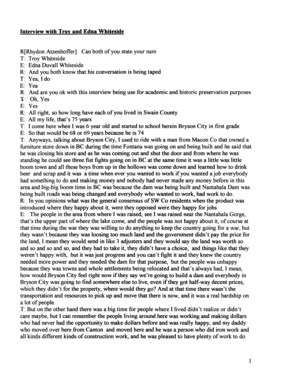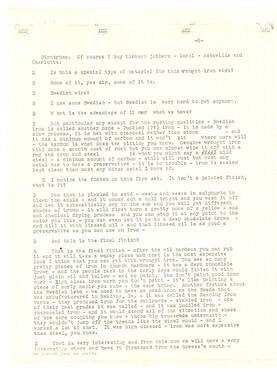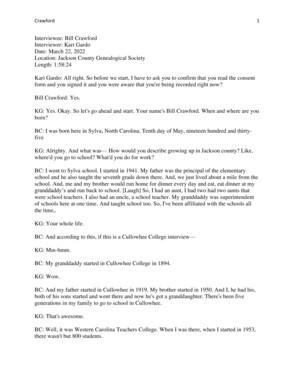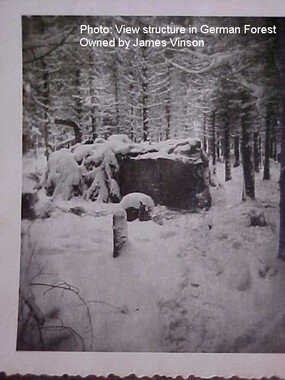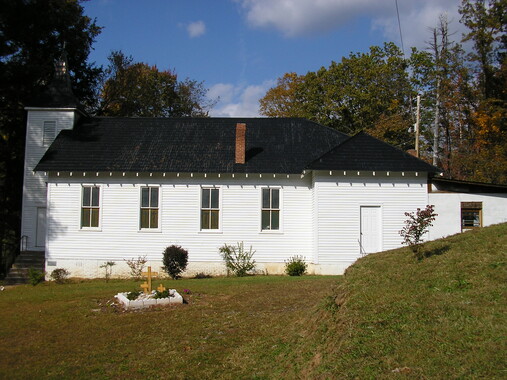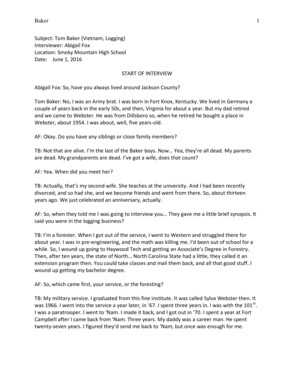Western Carolina University (21)
View all
- Canton Champion Fibre Company (2308)
- Cherokee Traditions (291)
- Civil War in Southern Appalachia (165)
- Craft Revival (1942)
- George Masa Collection (137)
- Great Smoky Mountains - A Park for America (2900)
- Highlights from Western Carolina University (422)
- Horace Kephart (941)
- Journeys Through Jackson (159)
- LGBTQIA+ Archive of Jackson County (85)
- Oral Histories of Western North Carolina (314)
- Picturing Appalachia (6797)
- Stories of Mountain Folk (413)
- Travel Western North Carolina (153)
- Western Carolina University Fine Art Museum Vitreograph Collection (129)
- Western Carolina University Herbarium (92)
- Western Carolina University: Making Memories (738)
- Western Carolina University Publications (2491)
- Western Carolina University Restricted Electronic Theses and Dissertations (146)
- Western North Carolina Regional Maps (71)
- World War II in Southern Appalachia (131)
University of North Carolina Asheville (6)
View all
- Allanstand Cottage Industries (62)
- Appalachian National Park Association (53)
- Bennett, Kelly, 1890-1974 (1463)
- Berry, Walter (76)
- Brasstown Carvers (40)
- Carver, George Washington, 1864?-1943 (26)
- Cathey, Joseph, 1803-1874 (1)
- Champion Fibre Company (233)
- Champion Paper and Fibre Company (297)
- Cherokee Indian Fair Association (16)
- Cherokee Language Program (22)
- Crowe, Amanda (40)
- Edmonston, Thomas Benton, 1842-1907 (7)
- Ensley, A. L. (Abraham Lincoln), 1865-1948 (275)
- Fromer, Irving Rhodes, 1913-1994 (70)
- George Butz (BFS 1907) (46)
- Goodrich, Frances Louisa (120)
- Grant, George Alexander, 1891-1964 (96)
- Heard, Marian Gladys (60)
- Kephart, Calvin, 1883-1969 (15)
- Kephart, Horace, 1862-1931 (313)
- Kephart, Laura, 1862-1954 (39)
- Laney, Gideon Thomas, 1889-1976 (439)
- Masa, George, 1881-1933 (61)
- McElhinney, William Julian, 1896-1953 (44)
- Niggli, Josephina, 1910-1983 (10)
- North Carolina Park Commission (105)
- Osborne, Kezia Stradley (9)
- Owens, Samuel Robert, 1918-1995 (11)
- Penland Weavers and Potters (36)
- Roberts, Vivienne (15)
- Roth, Albert, 1890-1974 (142)
- Schenck, Carl Alwin, 1868-1955 (1)
- Sherrill's Photography Studio (2565)
- Southern Highland Handicraft Guild (127)
- Southern Highlanders, Inc. (71)
- Stalcup, Jesse Bryson (46)
- Stearns, I. K. (213)
- Thompson, James Edward, 1880-1976 (226)
- United States. Indian Arts and Crafts Board (130)
- USFS (683)
- Vance, Zebulon Baird, 1830-1894 (1)
- Weaver, Zebulon, 1872-1948 (58)
- Western Carolina College (230)
- Western Carolina Teachers College (282)
- Western Carolina University (2008)
- Western Carolina University. Mountain Heritage Center (18)
- Whitman, Walt, 1819-1892 (10)
- Wilburn, Hiram Coleman, 1880-1967 (73)
- Williams, Isadora (3)
- Cain, Doreyl Ammons (0)
- Crittenden, Lorraine (0)
- Rhodes, Judy (0)
- Smith, Edward Clark (0)
- Appalachian Region, Southern (2940)
- Asheville (N.C.) (1944)
- Avery County (N.C.) (26)
- Blount County (Tenn.) (195)
- Buncombe County (N.C.) (1680)
- Cherokee County (N.C.) (283)
- Clay County (N.C.) (556)
- Graham County (N.C.) (238)
- Great Smoky Mountains National Park (N.C. and Tenn.) (525)
- Haywood County (N.C.) (3571)
- Henderson County (N.C.) (70)
- Jackson County (N.C.) (4919)
- Knox County (Tenn.) (35)
- Knoxville (Tenn.) (13)
- Lake Santeetlah (N.C.) (10)
- Macon County (N.C.) (421)
- Madison County (N.C.) (216)
- McDowell County (N.C.) (39)
- Mitchell County (N.C.) (135)
- Polk County (N.C.) (35)
- Qualla Boundary (982)
- Rutherford County (N.C.) (78)
- Swain County (N.C.) (2185)
- Transylvania County (N.C.) (270)
- Watauga County (N.C.) (12)
- Waynesville (N.C.) (86)
- Yancey County (N.C.) (72)
- Aerial Photographs (3)
- Aerial Views (60)
- Albums (books) (4)
- Articles (1)
- Artifacts (object Genre) (228)
- Bibliographies (1)
- Biography (general Genre) (2)
- Cards (information Artifacts) (38)
- Clippings (information Artifacts) (191)
- Copybooks (instructional Materials) (3)
- Crafts (art Genres) (622)
- Depictions (visual Works) (21)
- Design Drawings (1)
- Drawings (visual Works) (185)
- Envelopes (73)
- Exhibitions (events) (1)
- Facsimiles (reproductions) (1)
- Fiction (general Genre) (4)
- Financial Records (12)
- Fliers (printed Matter) (67)
- Glass Plate Negatives (381)
- Guidebooks (2)
- Internegatives (10)
- Interviews (815)
- Land Surveys (102)
- Letters (correspondence) (1013)
- Manuscripts (documents) (618)
- Maps (documents) (177)
- Memorandums (25)
- Minutes (administrative Records) (59)
- Negatives (photographs) (6090)
- Newsletters (1290)
- Newspapers (2)
- Notebooks (8)
- Occupation Currency (1)
- Paintings (visual Works) (1)
- Pen And Ink Drawings (1)
- Periodicals (193)
- Personal Narratives (10)
- Photographs (12976)
- Plans (maps) (1)
- Poetry (5)
- Portraits (4568)
- Postcards (329)
- Programs (documents) (181)
- Publications (documents) (2443)
- Questionnaires (65)
- Relief Prints (26)
- Sayings (literary Genre) (1)
- Scrapbooks (282)
- Sheet Music (2)
- Slides (photographs) (402)
- Songs (musical Compositions) (2)
- Sound Recordings (796)
- Specimens (92)
- Speeches (documents) (18)
- Tintypes (photographs) (8)
- Transcripts (322)
- Video Recordings (physical Artifacts) (23)
- Text Messages (0)
- A.L. Ensley Collection (275)
- Appalachian Industrial School Records (7)
- Appalachian National Park Association Records (336)
- Axley-Meroney Collection (2)
- Bayard Wootten Photograph Collection (20)
- Bethel Rural Community Organization Collection (7)
- Blumer Collection (5)
- C.W. Slagle Collection (20)
- Canton Area Historical Museum (2110)
- Carlos C. Campbell Collection (462)
- Cataloochee History Project (64)
- Cherokee Studies Collection (4)
- Daisy Dame Photograph Album (5)
- Daniel Boone VI Collection (1)
- Doris Ulmann Photograph Collection (112)
- Elizabeth H. Lasley Collection (1)
- Elizabeth Woolworth Szold Fleharty Collection (4)
- Frank Fry Collection (95)
- George Masa Collection (173)
- Gideon Laney Collection (452)
- Hazel Scarborough Collection (2)
- Hiram C. Wilburn Papers (28)
- Historic Photographs Collection (236)
- Horace Kephart Collection (861)
- Humbard Collection (33)
- Hunter and Weaver Families Collection (1)
- I. D. Blumenthal Collection (4)
- Isadora Williams Collection (4)
- Jesse Bryson Stalcup Collection (47)
- Jim Thompson Collection (224)
- John B. Battle Collection (7)
- John C. Campbell Folk School Records (80)
- John Parris Collection (6)
- Judaculla Rock project (2)
- Kelly Bennett Collection (1482)
- Love Family Papers (11)
- Major Wiley Parris Civil War Letters (3)
- Map Collection (12)
- McFee-Misemer Civil War Letters (34)
- Mountain Heritage Center Collection (4)
- Norburn - Robertson - Thomson Families Collection (44)
- Pauline Hood Collection (7)
- Pre-Guild Collection (2)
- Qualla Arts and Crafts Mutual Collection (12)
- R.A. Romanes Collection (681)
- Rosser H. Taylor Collection (1)
- Samuel Robert Owens Collection (94)
- Sara Madison Collection (144)
- Sherrill Studio Photo Collection (2558)
- Smoky Mountains Hiking Club Collection (616)
- Stories of Mountain Folk - Radio Programs (374)
- The Reporter, Western Carolina University (510)
- Venoy and Elizabeth Reed Collection (16)
- WCU Gender and Sexuality Oral History Project (32)
- WCU Mountain Heritage Center Oral Histories (25)
- WCU Oral History Collection - Mountain People, Mountain Lives (71)
- WCU Students Newspapers Collection (1923)
- Western North Carolina Tomorrow Black Oral History Project (69)
- William Williams Stringfield Collection (2)
- Zebulon Weaver Collection (109)
- African Americans (390)
- Appalachian Trail (35)
- Artisans (521)
- Cherokee art (84)
- Cherokee artists -- North Carolina (10)
- Cherokee language (21)
- Cherokee pottery (101)
- Cherokee women (208)
- Church buildings (190)
- Civilian Conservation Corps (U.S.) (111)
- College student newspapers and periodicals (2012)
- Dams (108)
- Dance (1023)
- Education (222)
- Floods (61)
- Folk music (1015)
- Forced removal, 1813-1903 (2)
- Forest conservation (220)
- Forests and forestry (1197)
- Gender nonconformity (4)
- Great Smoky Mountains National Park (N.C. and Tenn.) (181)
- Hunting (46)
- Landscape photography (25)
- Logging (119)
- Maps (83)
- Mines and mineral resources (9)
- North Carolina -- Maps (18)
- Paper industry (38)
- Postcards (255)
- Pottery (135)
- Railroad trains (72)
- Rural electrification -- North Carolina, Western (3)
- School integration -- Southern States (2)
- Segregation -- North Carolina, Western (5)
- Slavery (5)
- Sports (452)
- Storytelling (243)
- Waterfalls -- Great Smoky Mountains (N.C. and Tenn.) (66)
- Weaving -- Appalachian Region, Southern (280)
- Wood-carving -- Appalachian Region, Southern (328)
- World War, 1939-1945 (173)
Interview with Arthur Clark Smith
Item
Item’s are ‘child’ level descriptions to ‘parent’ objects, (e.g. one page of a whole book).
-
-
Smith 1 WESTERN NORTH CAROLINA TOMORROW BLACK HISTORY PROJECT Interviewee: Arthur Clark Smith (CS) Interviewer: Edward Clark Smith (I) County: Buncombe Date: February 5, 1987 Duration: 53:14 Edward Clark Smith: Daddy, what year, what's your birthday? Arthur Clark Smith: My birthday is December 3, 1902. I: How do you remember growing up as a child? CS: As the song singing out "Came up on the rough side of the mountain." I come up on the rough side of the mountain. Didn't have as much as children do now, didn't have much to play with only we had to go to work. Didn't have much enjoyment or nothing else. You know just play like children with sticks. I: What kind of games? CS: We didn't have no games to play, mumble peg, sticks to see how high we could jump and things like that. I: Did you have parties? CS: Yeah, we had parties, the younger people did, had candy pullings and things like that. When they got up any size they had country dances. We didn't have much of anything else and when night come we would have to stay at home and the old folks would tell about haunts and things, have us scared to go outdoors. Traveling around to see different things. There was a place over there at home that we called it Board Tree Branch and my mother said when somebody was going along one night and somebody threw down a bunch of boards behind him, he didn't see nobody and didn't see nothing else just heard those boards fall. It almost scared him to death. And they named the branch Board Tree Branch. I: What county? CS: That was in Mitchell County. Grassy Creek Township. We didn't have much of a community, just a scattered community, a few whites, few colored, had no entertainment, had two country stores, post office. I: What is your daddy's name? Smith 2 CS: His name was Thomas Smith. They called him Doug. I: Where did he come from? CS: I believe he come through Virginia, through that way. My granddaddy, I think that's where he come from. I: What was his name? CS: Thomas Plemmons. He was named after the boss there. The master was a Plemmons, well he took that name. My mother, Smiths owned her and then time comes there was a trial and they asked the children what name they want to take and my daddy was a Plemmons but he took my mother' s name and my grandmother's name. I don't know her first name but she was a Smith. So, we come out with Smiths. I: Your daddy come from Virginia? CS: No, my granddaddy did. My daddy was born in slavery. I: And so, he was a slave? CS: He was born into slavery. He came right on the tail end. My granddaddy was a slave. I: Did you ever see your granddaddy alive? CS: That's about twenty years ago, I was about 21 when he died. His name was Tom Smith. I: His real name was Thomas Plemmons? CS: I'm talking about my granddaddy. He didn't get too old, 84 I believe. I: Then your mother where did she come from? CS: South Carolina. My grandmother was in South Carolina at Plumtree about 15 miles above Spruce Pine. My mother was born back there in Avery County. Her name was Martha. Her birthday was the 26th of April but she never did remember the year. I: How many children did she have? CS: 13. Ten lived, three died at birth. The oldest girl was Iris, the next one was named May, the next one was named Lloyd, he was a boy, the next one was named Hobert, the next one was named Moe. I had two sisters, one named Ana and Ida, then I come in and I've got two sisters younger than myself. One of them is living now, Edna, she's next to me. My baby sister died not too long ago, 1980, I believe. 1982 she died. They had two children, one of them died, the next one is still living. She got to where she couldn't walk, had some kind of disease, stayed about two years at the rest home, couldn't walk a step, finally she died. I: With all the children, how did your mama and daddy… Smith 3 CS: Well, my mother and father had a farm. They had about 75 acres of land. Had plenty of timber on it and he cultivated it, had chickens, hogs, cows. Done pretty good. Acid wood and crossties. Railroad not too far away. I: Your mother was a housewife? CS: She was a housewife. Lot of times she would dig roots and sell them, and then she picked berries and took berries and things and sell them. I: What kind of roots? CS: Mayapple, bark, and different kinds of roots like Seng, she dug all kinds of roots like yellow roots. I: What did she do with them? CS: She would sell them. We were in Asheville. There used to be a Penney's headquarter over there down on Broadway. It's not down there now, it's been torn down for about 40 years and they would use the roots to make medicine. Where they bought roots and things. I: Did she make good money? CS: Pretty good, sometimes. If she needed cloth to make clothes and things like that. I: Did you all go to school? CS: Yeah, we went to school about four months a year. I: What year did you start? CS: I was six years old, about 1909 or 1910, somewhere like that I started. I: Where did you go to school? CS: I went to school at Blue Ridge. I don't know the name of the school. Blue Ridge Elementary School for one-room school. I went to school, had one big room. I: Did you enjoy school? CS: Not much, I didn't like to go to school. I: When you went to school who were the teachers? CS: Well just had one teacher. And when I went to school his name was Carr. And he never did name me at home, called me Buddy all the time. He never did name me. I: You kept the name? Smith 4 CS: I kept the name yeah. Everybody at home called me Buddy. Now they call me Clark, they don't know that Buddy name. Were you talking about when I was growing up? I was crazy about my mother when I was growing up. I would follow her to pick berries and I would follow her to dig roots, anything she had to do. I loved my mother. They said when I was a baby I would hold her dress and I would be hungry and she would sit down to nurse me. I would keep her from cooking, she would have to sit down and hold me. I: What was her name? CS: Martha. I: Was she, what does she look like? CS: She was a very bright woman with gray eyes, good hair, about 5' 5", low, heavy set. I: Where was she born? CS: Born in Avery County. I: What community was she… CS: Plum Tree. It's a community. She was Martha Lukas. I: How old was she when she died? CS: The best I can think about 76 years old in 1936. I: What kind of life did they have? CS: They had just a country life. People didn't have no real enjoyment that I see. You know just farming and eating. I guess they had fun, they went to church. I: When you were little did you ever think what you wanted to do? CS: I always wanted money. I would like to be an engineer. I wanted to be something different from what I am. I would have liked to be an engineer on a railroad. I like railroads. I worked on a railroad some- I always wanted to work on a train. Being a porter, or brakeman, or fireman. I: When you were growing up could you do that? CS: No, we couldn't do that. Some places you could do that but over here you could get on as a fireman or brakeman job on the Southern but the route we was on they didn't have no colored on it, only to work on the track. No that was Lansky Railroad. I: What did you all learn about in school. CS: Different things. Math, how to speak, Spanish language, same things they have today. I: Homework? Smith 5 CS: Yeah, had homework. Most of the time we didn’t have electric lights like they do now. The lamplight, get around the fireplace. Didn't have electric lights. I: Where did your grandmother come from? CS: Columbia, South Carolina. She brought her aunt with her. Her aunt was named Aunt Ellen. And they walked from South Carolina. Ellen was almost Indian, she had real bright long black hair. She had a roman nose. She was almost more like an Indian. I: Do you remember her last name? CS: She was a Lukas. I: You had all the children. What happened to the oldest one? CS: She was a cook. She cooked different places. Large hotels. Cooked in Georgia a long time in Atlanta. They had a summer resort hotel there in Alapaha where I was raised. I: What was the name of it? CS: Alapaha’s Inn. I: Was that where a lot of people worked? CS: Yeah. A lot of people worked there. It was a good hotel, a summer resort. Spruce Pine. I: How far did you all have to go to school? CS: About two miles. I: Did you walk? CS: Yeah, we had to walk. No other way to go than to walk. We walked down those paths through the woods. Those branches, footslogs, things like that. I: How did you go in the wintertime? CS: Went down. Snow went too deep to go… it was six or seven inches. Snow was knee deep, we had to stay home. We had a lot of snow back then. I: Do you recall any bad storms when you were a little boy? CS: Floods, windstorm. The wind would blow away houses. Snow too deep would break in roofs of old houses. And we had floods. Heard them talk about all that. I: You heard them talk about it? CS: Uh huh. Well I seen one flood in 1916. It washed away railroads, buildings, and stores and landmarks. It washed away timber. A river flood. In 1916. A little creek down close to where I Smith 6 was raised on Rose's Creek. It run through my granddaddy's farm. It washed it pretty bad. It washed away white people that lived above there. It washed their house and washed their land almost away. I: About how old were you? CS: Sixteen. Corn and stuff, didn’t have no seed no more. The mildew. Corn didn’t get ripe. There was a frost in 1917. Corn was up knee high. Potatoes and beans and corn, had to plant over again. Frost come and killed my potatoes. Potatoes weren't any good. Corn season was too short. I: After the flood, how did people get their houses… CS: Well sawmills and things built back. You know back then we called it log raisings where people help each other. Help each other build or farm if one got behind, the other one would come in and help him catch up. You would have to have money to do that now or they ain't gonna work. I: Did black people and white people help each other? CS: Yeah, they helped each other. I: What was that like? How did they get along? CS: They got along pretty good. No trouble much. I: What did your next daughter… CS: She stayed at home. Never did work out nowhere until she was pretty old age before she started working. She worked at Spruce Pine. I: What was her name? CS: Mae. She worked down at Spruce Pine in a hotel after she got good age on her. I: Did she have any children? CS: She's the only one that didn't have no children. My brother Lloyd had kids. He had five children. I: How old was Lloyd? CS: 89. I: Where did he live? CS: California. Worked in a coal mine 30 years. I: Where was the coal mine? Smith 7 CS: In Jenkins, Kentucky. He didn't get hurt or nothing. I: What did he die of? CS: Doctor said he had lung cancer. Had black lung. He was drawing $1,000 a month. I: Who was after him? CS: Moe, he die, had 6 to 5 children. I: Who was after Moe? CS: Hobert. He was the one that got killed. I: What kind of work did he do? CS: Back then he was working on the railroad but he wanted to work close home on that dam they built in there. You know just picking and shoveling was about all they had to do then. I: What happened? CS: Somebody hit him with a pick. They were in an argument about something or other. If there's one colored man in the bunch they will pick at him. He ain't got much of a chance when 4 or 5 or maybe 8 or 9 white and him the only one Black. I: What happened? CS: Knocked his skull down. He lived close to a week. Wasn't a hospital close then. Had to call in a doctor. He examined him and treated him but a real doctor was no closer than Avery County and said there wasn't any need to try to raise that skull. I: Well what happened to the man who hit him? CS: They caught him. He stayed in jail. I: Did they have a trial? CS: Yes. About two or three sessions of court after that. They kept putting it off, tried to wear it down. I: Where did they have the trial at? CS: Bakersville. I: That was in Mitchell County? CS: Yeah. People believed in segregation. They thought a Black man didn't have any rights for anything. Smith 8 I: What happened to the man that killed him? CS: A man killed him about a year after that. I: What happened when he went to court? CS: He never went to court. He left. You mean the man that killed my brother? They never caught him. He's still at large somewhere. That's been 70 some years ago. There ain’t no telling, haven’t heard anything. I: What was his name? CS: His name was Oscar Washburn. Uh huh, I knowed him good. I: So they caught him? CS: No, that ain't the one. That's the one that killed the man that killed my brother. I: Did people kill each other a lot back then? CS: Yeah. They killed each other. The man that killed my brother he just got 12 months. I: He got 12 months and then Oscar Washburn killed him? CS: A year after that. After he got out. I: How did you feel about it? CS: I felt bitter about it. There was nothing I could do. I was too young. I was sixteen or seventeen. They had to raise a lot of money to try to put the man away but you know how they did. I: Raise money? What did they do get a lawyer? CS: Yeah, they got a lawyer. Had a good lawyer. Had the best lawyer in town and Henderson County. Lawyer Watson. He claimed to be the best lawyer in this part of the country. Must not have been too good. I: You had to have your own lawyer when somebody did that? You didn't have a district attorney then? CS: Yeah. They had a district attorney. Solicitor they called him back then. I: What was the man's name that killed Uncle Hobert? CS: Bob Bing. I: Well who was after Uncle Hobert? Smith 9 CS: That was Ada. She had eight children. Then was Ida. She died in Virginia. She had five children. I: And the next one? CS: And the next one was Birdie. She had six children. I: Now when you were about sixteen, well after Uncle Hobert died what happened in your life after that? CS: I hung around and worked around there and I finally left and worked until I was about 20 years old helping my Dad on the farm and get wood. After I left there I was about 21. I left town and went to McDowell County. I: Why did you leave? CS: I just got tired of being around. Stayed in McDowell County and then I got out and went to a coal mine and just different places like that. I: So where did you go when you- where did you first start? CS: I went down in McDowell County about seven or eight miles from where I was raised and I worked down there a good while. I: What did you do down there? CS: I got to be a fireman on a steam shovel. Always wanted a job like that… I fired about three years down there and then I left for Kentucky for the coal mines. I: How did you get around? How did you travel? CS: Train then. I: When you first left home? CS: I walked down the mountain and then walked back home on Saturdays a lot of times. Could have rode back on the train. I: Why didn't you? CS: Well the train didn't come through at that time. The train run about the middle of the day and we didn't get off work until late. I: What kind of money did you get? CS: I think I earned 30 cents an hour, or 35. That would be $3.15 for ten hours. Woodrow Wilson was President. I can remember him good. We made more money then than we did any other time. It was $1.50 a day. He brought the wages up and then the next one was Harding who died about a year after… and Calvin Coolidge. Smith 10 I: Did you all go to church? CS: Yeah, we went to church about every Sunday. I: Where did you go? CS: Down there where church and school is all about the same place. The church is Blue Ridge Chapel. I: What community was this in? CS: The Grassy Creek area. I don't know if the community was ever named. I: Was church any different... did you have many customs like the..? CS: No. I went to a Methodist Church. I didn't know nothing about no Holiness Church or no Baptist Church. They didn't like Baptist people where I was raised, nothing but Methodists. We were strict Methodists. I: Daddy, what was your faith holiday? CS: Christmas. I: Why, was that special to you? CS: Yes, it seemed to be special until I found out Santa Claus was fake and I didn't have any more use for it. People back then cut up a lot on Christmas, shooting guns. Well most of them old men drink liquor you know and have a lot of different foods, mostly have hogs, have chickens, turkeys, everything killed… we would have a feast you know. All kinds of pies. Stuff like that for two or three weeks. I: What kinds of presents? CS: Well you didn’t get no presents but oranges, apples, and candies. Young’uns now get more than I ever got in my whole life. Well it’s a new thing. You didn't see no oranges like you do now, bananas and things like that. The country store didn't have none in it. I: I wonder why? CS: I don't know why. Didn't have no nuts of no kind. Course you had plenty of walnuts. Black walnuts grow. But I didn't see no kind of nuts. I guess they bring candy around Christmas. We had all kinds of candy and oranges and things like that. I: Daddy, where did you meet Momma? CS: In Alapaha. She taught school down there for two years before we was married. I: You met her down there teaching school. Smith 11 CS: She taught school at once and she come over there and taught school. She was teaching when my grandmother died. My grandmother mother died in 1933 and the next year 1934 the same day of March 18 my uncle died on the same day. That was my daddy’s half brother named Henry Flemmer. My daddy had another brother named John. They were both brothers and Henry was a half-brother. I: How old were you when you first came to Buncombe County? CS: Around 32 years old. I: What year was it? CS: 1935 I believe. I: What was Buncombe County like? CS: There wasn't much but Bridget Park and Packs Square. The rest of it, there wasn't much to it. Dawn at Tunnel Road, there wasn't nothing down there. You could come on the train but we rode the Mayo. Mayo trucks from Spruce Pine. I: Did you have to pay? CS: Yeah, had to pay. You could come on the bus, there was a bus running then. But we rode the Mayo, it was cheaper. I: So, when you first came to Asheville, what did you do? CS: I worked at Davenport Hotel. I: What did you do there? CS: I worked in the kitchen, washed dishes. Then I went to the scenic highway, then on to street paving. I've done a lot of paving around Asheville. I: What was it like for colored people? CS: The colored people? It wasn’t too good. Didn't have much opportunity. Different drinking water. Wrote on the water fountains, colored and white. Stores the same thing. I: It wasn't like that back where you grew up? CS: No stores had any water fountains or anything. I remember above the Mason/Dixon Line you could ride anywhere you got on the train. Below the Mason/Dixon Line you would have to ride Jim Crow. I: So, in Asheville it was like Jim Crow then? CS: Yeah. Trains, buses, all transportation. Smith 12 I: Did people try to do anything about it? CS: Yeah, they did what they did then, petition about it. They never take it laying down. I: What did they do? CS: Talked to the government, states, counties and things like that. That's all they could do they didn't have no marching then. I: What was the leadership like in Asheville? CS: Preachers, ministers, mostly. I: Do you remember them? CS: Some of them. The Baptists they had… I can’t remember their name. Now the Methodists, they had Reverend Anderson. They had several preachers. I: How did you feel about how things were with blacks and whites? CS: I thought maybe someday it would get better. I didn't know what was going to happen. I thought someday things would turn out better. Hopefully things will get better. I didn't know how it was going to come about. I: Do you think things are better? CS: In a way, it got better. I: In what ways do you think things got better? CS: Transportation not Jim Crow. And the eating parlor not Jim Crow, you can sit wherever you want. You can get on a bus or train or airplane and ride anywhere you want to. You can go into a bathroom that's one thing that was bad around here, they didn't have no bathrooms, no public bathrooms. I: What did you do? CS: You would have to go to somebody's house or get out of sight somewhere. That's evil, that's one evil thing. You can go to a bathroom if you can find one now. Asheville's pretty bad for their bathrooms now. Stores have bathrooms, like supermarkets they all have bathrooms. I: When you first worked at the Battery Park was there a lot of Black people working there. CS: Yes, a good many. I: How much money where you making there? CS: About $30 a month. Smith 13 I: And you left there and went on to Scenic Highway? CS: Scenic Highway, yeah, was good. Coal was bad, I stayed away. I: Were a lot of Blacks working on the Scenic Highway? CS: No, not too many. I remember about three where I was working one time. I: Would you say the cost of living was cheap? CS: In those days, you could get a pound of sugar for a nickel. About 15 or 20 cents for fatback and things like that. I: In the city you had to buy all your food? CS: Umhum. I had a little garden when I first come out. The backyard had some tomatoes and sometimes potatoes. I: When you and Mamma where young, what did you all do? CS: We would go to the show. Radios were coming in pretty good back then. We didn't have no television. We could go to town. They had parties different places. Somebody would give a party and we would go to a party. I would go to the show. I: When you first came to Asheville what president was in office? CS: Hoover was president. I: What kind of president was he? CS: He's the worst one we had. I believe we come on and Roosevelt was elected. Hoover went out and Roosevelt was president. Things begin to pick up pretty good, but before that you couldn't get nothing. I: That's right that was the depression. CS: That was the depression, yeah, you couldn't get nothing back then worth anything. You couldn't get a pack of smoking tobacco. It didn't cost but a nickel. I: You say you could get food, how could you get food? CS: You could food through the country. Then there was stores you could get credit at stores if you had any money to pay. Then we would haul wood and stuff like that and ties and buy food like that. I: After the depression, what kind of work did you do? CS: That's when we come over here. Roosevelt had a lot of progress. Three C’s, Scenic highway going through and different jobs. You could get a job pretty good. Smith 14 I: Was that when WPA… CS: Yeah. WPA. I never did get on it. I've never been on a project like that. I never had nothing give to me. I've had to work all of my life. I tried to get on WPA. I: Why didn't you get on WPA? CS: I had some land back in Mitchell County. I: What did the land have to do with it? CS: Couldn't have nothing, you know. It's like it is now with welfare. You couldn't get on if you had anything. Had to be down, crawling and Black people had a worse time than the whites. I: What kind of work did you do on the Scenic Highway? CS: I run drill and I worked common labor a while I made $11.88 for I believe it was eight hours or ten. And on the drill I got 45 cents. I: What did most of the other Black people in Asheville do? CS: Work at hotels, domestic work, hotel work mostly, the biggest part of them would get a hotel job, orderly, bellhop or something like that and some of them work on the railroad. I: During that period, when you were 11 or 12 years old, the Titanic happened. How did you all hear about it? CS: Newspaper. People would buy a paper then bring it back and read it. I: It could have been four or five years before you would have knowed it. CS: Yeah, could have been a long time. There was a big uproar. The main uproar around then. And then and the president's elections was another one. With Wilson. I: What were they afraid of with Wilson? CS: Slavery coming back under the Democrats. I: What kinds of things did they say? CS: That in the country there was going to be slavery again. My daddy went to the store out at Colby and turned around and went to Alapaha about two mile and a half to the store, came back and took his beer. Drunk his beer and said, “Woodrow Wilson is the best president since Roosevelt.” I: What did he do? CS: World War I, things picked up. Prices raised, things went up. Smith 15 I: So Wilson turned out to be a good president? CS: Good president, yeah. Best they had back then. I: Wilson scared all the Black people. What about the white people? CS: They weren't scared but the Democrats laughed about it. Everything would change, and it did change. I: Do you think they were changes for the better? CS: Changes for the better I: And who was after him? CS: Harding, I believe. He got killed or died or something in California. And Coolidge come in. Now a tariff was back then before Woodrow Wilson, back then Taft was president. Howard Taft, he’s republican. I can remember the tariff, was around Roosevelt third term and Wilson beat him and it flipped. And Wilson got elected. Then Roosevelt next to Wilson. I: Were you all voting, the Black people? CS: No, we weren't voting then. I: When was the first time you voted? CS: The first time about in Hoover. I: I believe the first time you voted, you voted in Spruce Pine. CS: I believe that first time, Hoover was elected and we was on a trip to Spruce Pine and my mother said that Hoover was no good. Starving for four years then we moved back again saying things would pick up. I: When you got to the poll the first time, what happened? CS: They threatened us, some white men out there, trying to keep us away from the poll. There were 4 or 5 sheriffs out there. I: And you've been voting ever since? CS: Been voting ever since. I: Who do you think the worst president was? CS: Hoover. I: Based on your life experiences and what you come from and what you've experienced and seen, what would you want the future to be like? Smith 16 CS: People could live and do what they wanted to do, I mean live like they wanted to and have progress, wouldn't be no hindrance from making progress like there used to be and like there is now. Some people try to hinder you, some of the whites and groups try to hinder you from making any progress, they don't want you to make progress, don't want you to pull out and make a good living, rather for you to stay behind. That’s a hard question to ask. I don't know hardly how you could… serving the Lord, put the Lord in front. Serve the Lord and be prayerful and honest and faithful in the work of the Lord. And believe in the Lord.
Object
Object’s are ‘parent’ level descriptions to ‘children’ items, (e.g. a book with pages).
-
Arthur Clark Smith is interviewed by Edward Clark Smith on February 5, 1987 as part of the Western North Carolina Tomorrow Black Oral History Project. Born on December 2, 1902, Smith discusses his family members and growing up on a farm in Mitchell County, North Carolina. He recalls his mother digging roots to sell at the market to make medicine, attending school and church, and celebrating Christmas. Smith talks about a flood destroying homes and businesses around 1916 and frost damaging crops in 1917. He describes how one of his brothers, Hobert, was killed by a white man while working on the railroad. At 21 years old, Smith remembers moving to McDowell County and then Kentucky to work in the coal mines. He moved to Asheville about 1935 where he worked at the Davenport Hotel as a dishwasher and later as a street paver for the Scenic Highway. Smith describes segregated conditions of water fountains, stores, and transportation in Asheville. He also describes voting for the first time i
-
